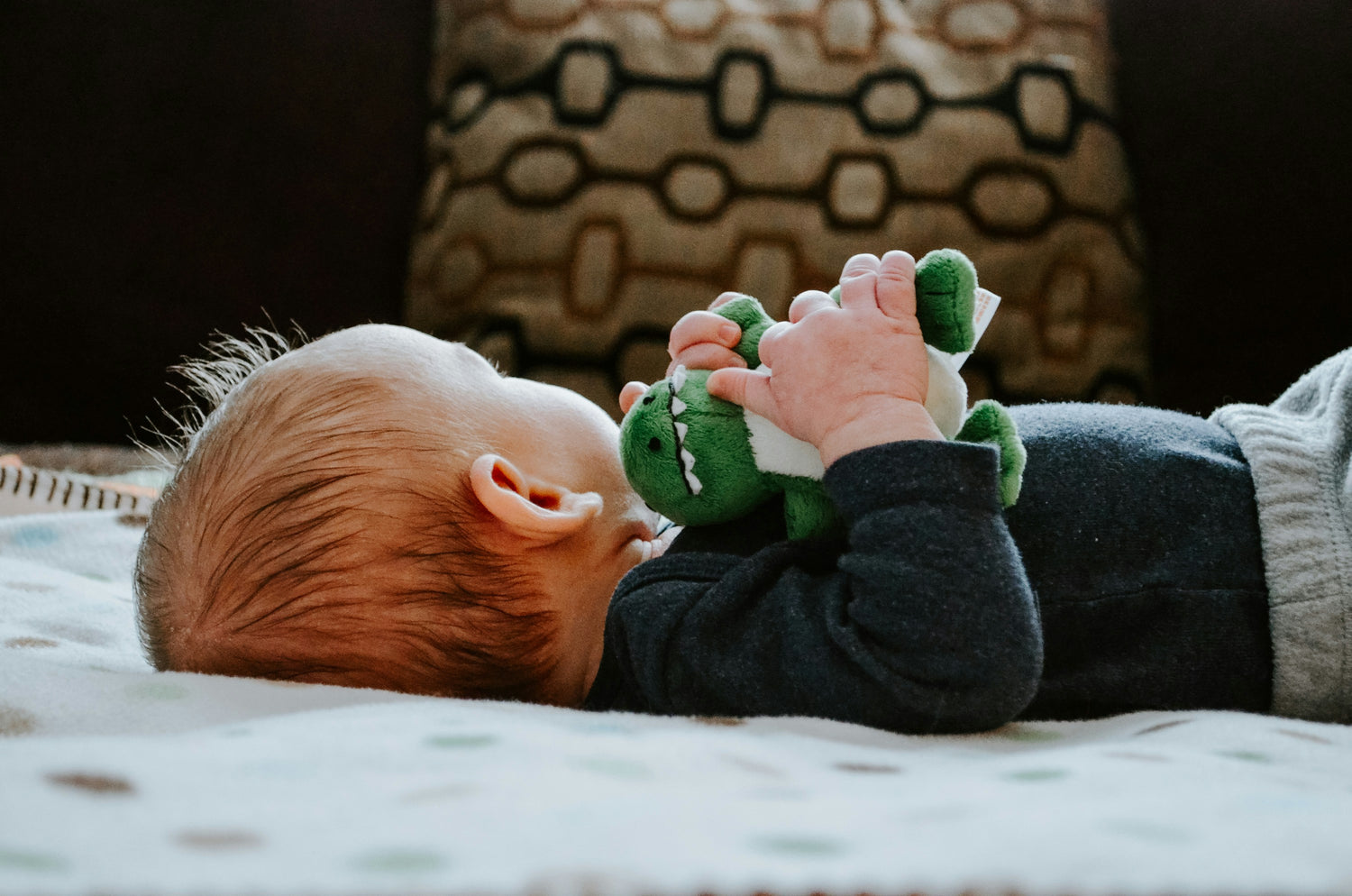As parents, ensuring your child gets enough sleep can feel like chasing a moving target. From babyhood through the teenage years, a child’s sleep needs are constantly evolving. But how much sleep do kids really need by age? And how can we support healthier sleep patterns that promote growth, learning, and emotional regulation? In this guide, Snuggle Cubs analyze age-specific sleep requirements, provide NHS-backed recommendations, and offer a practical sleep chart so you can confidently adjust your child’s routine.
Why sleep is so important for children’s development?
The benefits of putting a child to bed at night go beyond the chance to get some rest after a busy day of parenting and household chores. Studies show that children who get enough sleep show improvements in the following areas:
+ Attention
+ Behavior
+ Learning
+ Memory
+ Mental health
+ Physical health
+ Emotional regulation
+ Overall quality of life
While restful sleep is always important, let's take a closer look at children's needs based on their age.

How Can I Tell if My Child Isn’t Getting Enough Sleep?
A child who does not get enough sleep may:
+ Fall asleep during the day
+ Be hyperactive (especially younger children)
+ Have difficulty paying attention
+ Have difficulty with schoolwork
+ Be irritable, whiny, cranky or moody
+ Have behavioral problems
>>> How To Put A Toddler To Sleep In 40 Seconds?
How much sleep do kids need at different ages?
Child Sleep Chart by Age
|
Age Group |
Recommended Sleep Duration |
|
Infants (0-12 months) |
12-16 hours (including naps) |
|
Toddlers (1-2 years) |
11-14 hours (including naps) |
|
Preschoolers (3-5 years) |
10-13 hours |
|
School-age (6-12 years) |
9-12 hours |
How much sleep do kids need NHS?
How much sleep does a 5 year old need NHS? The National Health Service recommends the following sleep duration for each age group:
+ 3 years old daytime: 0 to 45 minutes, nighttime: 11 hours 30 minutes to 12 hours.
+ 4 years old nighttime: 11 hours 30 minutes.
+ 5 years old nighttime: 11 hours.
How much sleep does a 7 year old need NHS?
The amount of sleep needed depends on age: children aged 3 to 6 need 10 to 12 hours, those aged 7 to 12 need 10 to 11 hours, and adolescents aged 12 to 18 need only 8 to 9 hours per day.
How much sleep does a 10 year old need NHS?
School-aged children typically need 10 - 11 hours of sleep per day, but many sleep an average of 9 - 10 hours.

Tips to Improve Children’s Sleep Quality
There are several ways to improve sleep quality and create a sleep-friendly environment for children:
+ Always put baby to sleep on their back to sleep. However, if your baby can roll over in both directions (from back to tummy and tummy to back) comfortably, there's no need to reposition them onto their back each time they roll.
+ Baby's face uncovered. You should not cover your baby's face while sleeping, as this prevents the flow of oxygen and the release of carbon dioxide. This can lead to a risk of suffocation. To avoid choking or similar problems, you should not cover your baby's face while sleeping.
+ Use a clean, firm, well-fitting mattress that comes with the travel cot. A safe mattress should be the right size for the cot, sturdy, clean, in good condition, and lie flat (not sloping or raised).
+ Do not overheat or overdress:
When dressing your baby for sleep, choose clothing that suits the room temperature aim for comfortably warm, not too hot or too cold.
Choosing the right sleepwear helps keep your baby both safe and comfortable. Merino wool is a great option for children as it's soft, sustainable, and gentle on sensitive skin.
In warmer weather, babies can wear a sleeveless bodysuit, onesie, or simply a nappy with a singlet. In cooler temperatures, a full-body suit helps keep them warm.
If you're using a sleeping bag, select a TOG rating that matches the room's temperature. You can refer to the manufacturer's guide, which is usually included with the packaging, to choose the appropriate TOG and underlayers. Make sure the sleeping bag is safe, it should fit snugly around the neck and allow your baby's arms to remain outside.
For younger babies who are swaddled or wrapped, use light, breathable fabrics like muslin or cotton.
+ Skip extra pillows, heavy blankets or toys: Make sure your baby's bed is free of blankets, pillows, stuffed animals, or bumper pads, as your baby could roll into them and have their airflow restricted.
+ Never put a baby on a couch or sofa. Pillows, sofas, and armchairs are not safe sleeping surfaces because they are too soft and increase the risk of sudden and unexpected infant death.
+ No smoking around baby. Keep your baby away from anyone who smokes, and avoid taking them into areas where smoking is happening. If you’re expecting visitors who smoke, let them know your no-smoking policy in advance so they understand and can respect your rules.

>>>> 3 Best Swaddle for Newborns to Help Baby Sleep All Night
Conclusion
Sleep isn't just about rest, it's a foundational part of your child’s health, learning, and happiness. By understanding how much sleep kids need by age and using tools like a child sleep chart, you can create a routine that evolves as your child grows. So the next time you’re adjusting bedtime or wondering if your child is getting enough rest, refer to this guide. A well-rested child is better equipped to thrive emotionally, academically, and physically.







